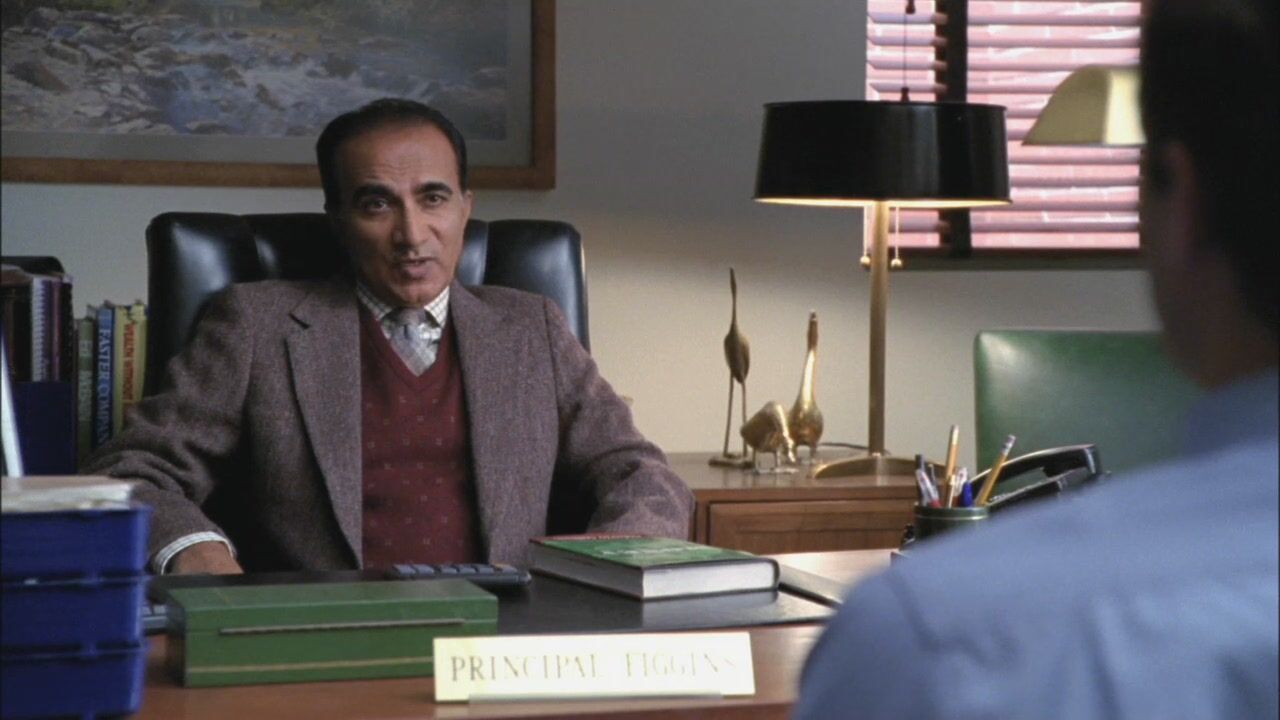Introduction:
In the small town of Brookside, where the echoes of gossip reverberate through the quaint streets, a clash recently unfolded that sent shockwaves through the community. Emma, a determined and outspoken high school student, found herself at odds with the stoic figure of Principal Figgins. The dispute, which centered around an issue close to Emma’s heart, highlighted the delicate balance between student advocacy and administrative authority.

The Genesis of Conflict:
The spark that ignited this clash was a seemingly mundane issue – the proposed budget cuts to the school’s arts program. Emma, a passionate advocate for the arts, felt a visceral connection to the creative outlets that the program provided to students. With rumors of funding reductions circulating, she decided to take matters into her own hands, seeking an audience with Principal Figgins.
Emma’s Argument:
Armed with facts and a carefully crafted argument, Emma approached Principal Figgins with a determination that belied her youth. She eloquently articulated the invaluable role that the arts played in fostering creativity, critical thinking, and emotional intelligence among students. Drawing on research and personal anecdotes, she painted a vivid picture of the positive impact the arts had on the student body.
She passionately argued that the arts were not merely extracurricular activities but essential components of a holistic education. Emma emphasized that slashing the budget for the arts would not only deprive students of an enriching experience but also stifle the potential for future artists, musicians, and performers to blossom.
must read=Emma Argues with Principal Figgins
Principal Figgins’ Perspective:
Principal Figgins, a seasoned administrator with a stern demeanor, listened to Emma’s impassioned plea with a measured response. He acknowledged the importance of the arts but explained the financial constraints the school faced. Budget cuts, he argued, were unavoidable, and difficult decisions needed to be made to ensure the sustainability of the school’s overall academic programs.
Figgins elucidated the intricate budgetary challenges, including declining enrollment and increased costs, which necessitated tough choices. While he empathized with Emma’s passion, he stressed the need for a balanced approach to allocating limited resources.

The Clash of Ideals:
As the discussion unfolded, it became apparent that Emma’s idealistic vision clashed with Figgins’ pragmatic approach. The clash was not merely about the arts; it was a collision of two worldviews – the enthusiasm of youth pitted against the pragmatism of experience.
Emma accused the administration of undervaluing the intangible benefits of the arts, arguing that the budget cuts reflected a lack of foresight. Principal Figgins, in turn, urged Emma to consider the broader context and the responsibilities of managing an educational institution.
Resolution or Impasse?
Despite the impassioned arguments on both sides, a resolution remained elusive. Emma refused to accept the inevitability of the budget cuts, while Principal Figgins remained steadfast in his duty to make tough decisions for the greater good of the school.
The fallout from this clash rippled through the student body and the community, prompting discussions about the balance between student advocacy and administrative decisions. Some applauded Emma for her courage, while others supported Figgins, acknowledging the complexity of managing a school’s finances.

Conclusion:
The clash between Emma and Principal Figgins serves as a microcosm of the broader challenges faced by educational institutions – the delicate dance between student advocacy and administrative pragmatism. As the community grapples with the aftermath of this confrontation, it is clear that finding common ground is essential to fostering an environment where the voices of students are heard, and the realities of budgetary constraints are understood. The story of Emma and Principal Figgins is a reminder that, in the pursuit of quality education, collaboration and understanding are paramount.




